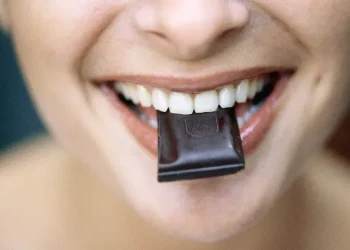Could Tongue-Scraping Be Putting Your Heart Health at Risk? Experts Weigh In
New Health Warning: Overdoing Tongue-Scraping May Have Unexpected Consequences
Tongue-scraping has been a popular dental practice for centuries, gaining renewed attention in recent years. Searches for “tongue scraper” have nearly doubled in the last two decades, according to Google Trends. It’s known for its ability to improve oral hygiene, freshen breath, and even enhance taste. However, some experts are raising concerns about an unexpected health risk: heart problems.
While tongue-scraping is widely touted for its dental benefits, a growing number of experts warn that it could have a surprising and potentially dangerous impact on heart health.
Tongue-scraping (or tongue-brushing) is a simple process that involves cleaning the tongue to remove bacteria, food debris, and dead cells. It’s a practice commonly used to freshen breath and improve overall oral hygiene.
According to the Cleveland Clinic, the most effective way to scrape the tongue is using a specific tool, which can be found at pharmacies for as little as $8. A metal scraper, recommended by Dr. Whitney White of Aspen Dental, is considered particularly hygienic and easy to use.
When used gently and sparingly, tongue-scraping helps eliminate plaque and bacteria, ensuring a cleaner mouth. Dr. Tenika Patterson, a dental hygienist, explains that tongue-scraping can be far more effective than brushing when it comes to removing plaque:
“Brushing can push dirt deeper into the surface, but scraping gets it all off easily.”
While tongue-scraping offers benefits, experts warn that the practice could introduce unforeseen risks, particularly for heart health.
Dr. Bradley Serwer, an interventional cardiologist, explains that aggressive or frequent tongue-scraping can cause microscopic cuts on the tongue. These tiny abrasions can allow bacteria to enter the bloodstream, increasing the risk of a heart condition called endocarditis. Endocarditis is an infection of the heart valves that can lead to severe damage if left untreated.
Oral health has long been linked to overall heart health, with conditions like gingivitis known to contribute to heart disease. So, the potential for bacteria entering the bloodstream from tongue-scraping should not be taken lightly.
Although scraping your tongue gently once a day can help maintain a healthy mouth, experts warn that overdoing it may harm your heart health. Dr. White cautions that excessive scraping can disrupt the balance of good bacteria in your mouth, which is vital for the production of nitric oxide, a compound crucial for heart health.
“While gentle, regular scraping helps remove harmful bacteria, doing it too often can lower nitric oxide levels and increase the risk of high blood pressure,” Dr. White explains.
This is why moderation is key when it comes to tongue-scraping.
While tongue-scraping can improve oral hygiene, it should never replace regular brushing and flossing. Dr. Serwer stresses that maintaining healthy gums and teeth through regular visits to the dentist, along with brushing twice a day and flossing, is far more important than relying on tongue-scraping.
“The benefits of tongue-scraping are minimal compared to the importance of regular oral hygiene,” Dr. Serwer adds.
Experts agree that while tongue-scraping can play a small role in oral care, it’s not a critical step in your daily routine. In fact, Dr. White recommends scraping your tongue in moderation:
“Less is more when it comes to scraping. Keep your routine balanced for the best results for both your mouth and your body.”
If you’re a fan of tongue-scraping, there’s no need to stop—just be sure not to overdo it. Use a gentle touch, avoid scraping too frequently, and continue with your regular brushing and flossing. Tongue-scraping can be a helpful tool for freshening your breath and maintaining oral hygiene, but it should never replace the fundamental steps for keeping your mouth—and your heart—healthy.
This article was rewritten by JournosNews.com based on verified reporting from trusted sources. The content has been independently reviewed, fact-checked, and edited for accuracy, neutrality, tone, and global readability in accordance with Google News and AdSense standards.
All opinions, quotes, or statements from contributors, experts, or sourced organizations do not necessarily reflect the views of JournosNews.com. JournosNews.com maintains full editorial independence from any external funders, sponsors, or organizations.
Stay informed with JournosNews.com — your trusted source for verified global reporting and in-depth analysis. Follow us on Google News, BlueSky, and X for real-time updates.












